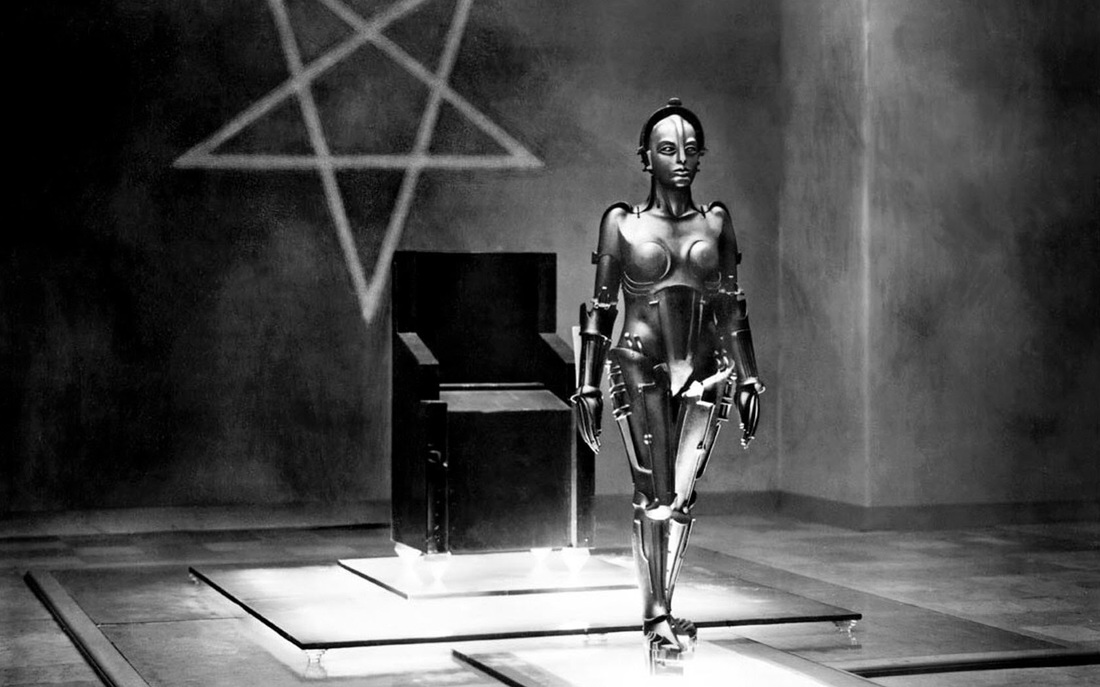|
This one is officially unrated. I have to warn you. There is some content in the movie that might alarm some. While I highly recommend you see this movie to understand the German silent era, please use your best judgment.
I've never had such a hard time with a first sentence. This movie exists outside of time or criticism. This movie, in many ways, is the foundation of cinema and modern science fiction. This movie is beyond repute and it is well-deserving of that title. To write something here, in many ways, seems inadequate. Perhaps the subject is so big, that the very nature of the blog seems to cheapen it. (I just watched Heckler and they had such a low estimation on the nature of the blog that I just have a bit of self-loathing I have to go through.) For some reason, the first time I watched Metropolis, it didn't shape me as much as it did this time. I'm not saying it is a perfect film, but it has everything it needs and more. But I was watching great movie after great movie at the time, trying to catch up on all of my critical viewing like I was taking vitamins. This movie needed to have something special; some time set aside for it. I didn't give it that. I watched it and digested it that night. But this viewing in context of this class gave this movie such value and distinction. By all intents and purposes, this movie shouldn't exist. It is possibly the most well shot film I have ever seen. A typical product of this era, the sets are absolutely beautiful. In many ways, this movie encapsulates the era perfectly. At its roots, it is the quintessential piece of German Expressionism. Every shot is a drawing come to life. The world stresses the puniness of humanity compared to the sprawling machine-run city presented in the world. The imagery of gears and steam create a simultaneous paradox of grime and cleanliness. But it is also the epic historical fantasy, throwing the viewer back to the Tower of Babel to frame the allegory of the individual lost in the construction of a bigger and better world. The Tower impresses and the viewer plays the role of the slave putting this affront to God into the real world. And even among all the grandeur of the spectacle, this movie serves as Kammerspielfilm, a love story between the man and the woman. It is about the heart as the last intertitle spells clearly. The head and the hand need the heart. The oppressed are given their time to show their plight and their folly simultaneously, destroying their oppressor while executing their children. The plot has been used dozens of times. This was the template for Avatar, Ferngully, Pocahontas, The Last Samurai, Dances with Wolves, and countless others. But for some reason, it doesn't feel cheap here. The son of the architect of this great Metropolis sees the world behind the curtain and decides to live amongst the oppressed. He finds true love, only to have that snatched away by his old lifestyle. The difference here is that the resolution isn't about going to war, but by stressing the stupidity of war. Freder acts as the mediator between the greedy and the oppressed. Instead of fighting for the utopia where work doesn't need to be done, rather the beginning of the future is hinted at where both parties must reevaluate their roles in society. This movie is gorgeous. The imagery is iconic, primarily the famous Man Machine pictured above. The look of expressionism is always so bizarre, but our culture can only mimic this world poorly. It is long, but that's the nature of the beast. This is avant-garde and a narrative simultaneously. Lang knows each aspect of this world and each shot is a master class in mood.
0 Comments
Leave a Reply. |
Film is great. It can challenge us. It can entertain us. It can puzzle us. It can awaken us.
AuthorMr. H has watched an upsetting amount of movies. They bring him a level of joy that few things have achieved. Archives
July 2024
Categories |

 RSS Feed
RSS Feed